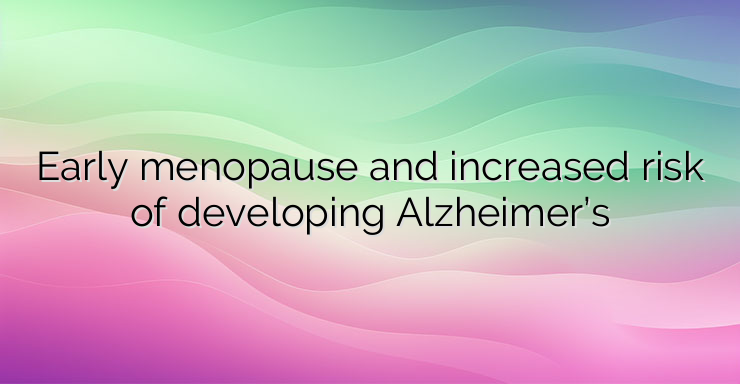In a recent study, researchers have found that the role of a certain hormone in women may explain the fact that they are more affected by neurodegenerative diseases than men. The number of Alzheimer’s cases is increasing every year. The main risk factor for the disease is age. Slow degeneration of neurons causes impairments in short-term memory, executive functions, and orientation in time and space. Examination of the brains of deceased Alzheimer’s patients revealed two characteristic lesions associated with two proteins: amyloid beta peptide and tau protein. 25 patients were studied, of which 10 were men and 15 were women. That women are more affected than men may be explained by their longer life expectancy, but there appear to be other factors as well. According to a recent study, a hormone involved in menopause in women is linked to the development of the disease. Which hormone is associated with an increased risk of developing Alzheimer’s? Follicle-stimulating hormones – FSH are reproductive hormones that act on the gonads: the ovaries in women and the testicles in men. If their secretion is regular in men, in women it varies according to the menstrual cycle. The level of this hormone increases during the so-called follicular phase until it reaches a peak at the time of ovulation. As menopause approaches, FSH hormone levels are elevated. However, a team of researchers has identified follicle-stimulating hormone as a major pathogenic factor in the development of Alzheimer’s disease in women. FSH hormones are in higher concentrations in the blood during menopause and bind to FSH receptors on neurons. This natural mechanism can cause diseases related to amyloid beta and tau proteins, leading to the development of Alzheimer’s disease. FSH was found to act directly on hippocampal and cortical neurons to accelerate the deposition of amyloid beta and tau proteins and thereby disrupt brain activity, the study authors explained. If we block the action of follicle-stimulating hormone, we could not only prevent Alzheimer’s disease, but also treat diseases such as obesity and osteoporosis, which are associated with menopause. Thus, anti-FSH antibodies may be tested in the near future to support therapies against bone loss, obesity and Alzheimer’s disease. Sources: https://www.science-et-vie.com/corps-et-sante/alzheimer-une-menopause-precoce-augmenterait-les-risques-de-developper-la-maladi-67244 https://www .nature.com/articles/s41586-022-04463-0


Leave a Reply